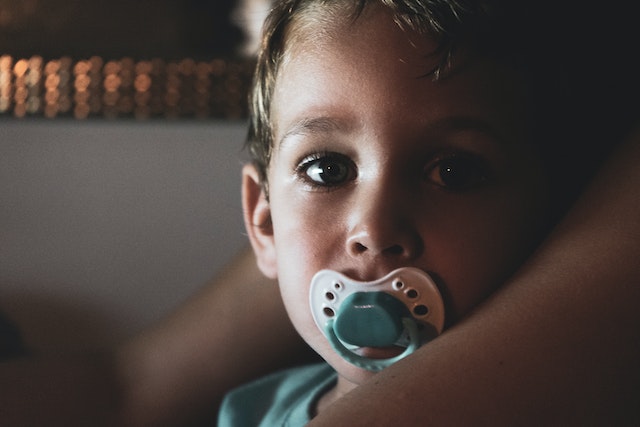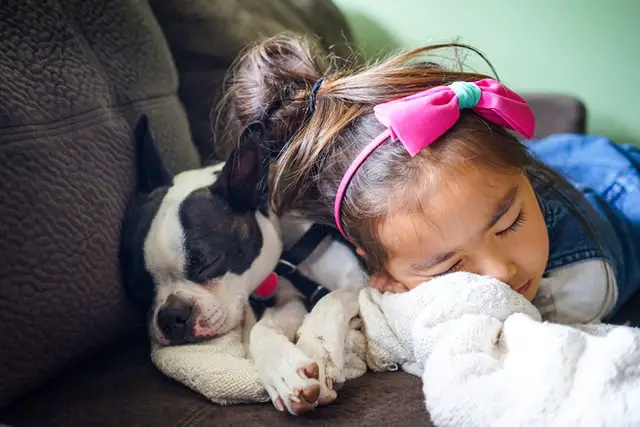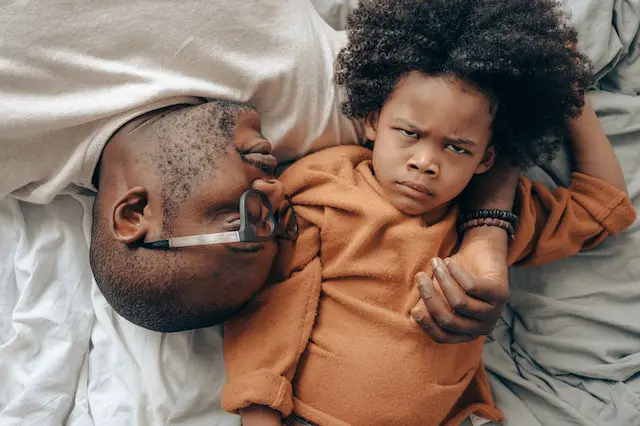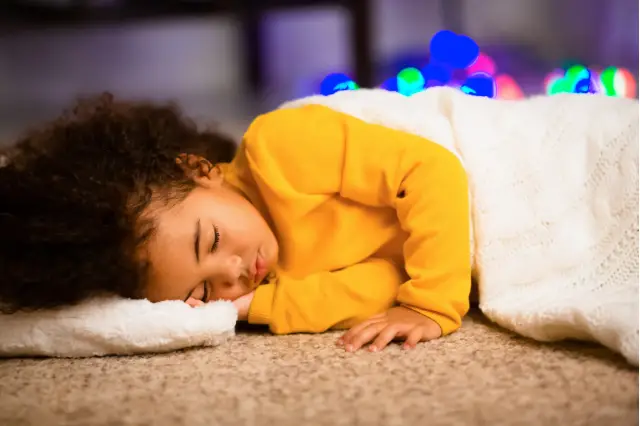How To Get Your 4-Year-Old Off The Pacifier?
Binky, soother, paci, dummy- a pacifier can be called by many names, but the purpose is the same: COMFORT! Pacifiers bring a significant comforting effect on babies and infants. It is a lifesaver for the parents too, but all good things must come to an end. When a newborn transforms into a toddler, it is time for the binky to go by.
But what if a 4-year-old still uses a pacifier and not giving up on it? Read on to see How to get your 4-year-old off the pacifier with some practical tips.
Is it normal for a 4-year-old to use a pacifier?
There is no rush! Pacis can be a great emotional support for kids up to 1-3 years. Doctors recommend getting your child off a pacifier between age 1-3, but some kids use it after age 3. However, these kids need help to stop using it.
With all the benefits of using a pacifier for newborns and infants, there are some potential side effects of pacifier use in older kids :

1- Possible dental problems
Usually, pacifier use in the early months of a baby’s life doesn’t cause any long-term dental problems. However, using pacifiers past 18 months of age may lead to serious dental issues, such as misaligned teeth, protrusion of front teeth, and improper biting.
2- Speech problems
The prolonged use of a pacifier makes the tongue thrust forward between the teeth, leading to speech delays and speech production errors, such as difficulty pronouncing words with the sound ‘s’ and ‘z.’
3- Risk of middle ear infection
The extended use of pacifiers can cause risk factors for ear infections. Continuous sucking on a pacifier may impact the function of Eustachian tubes in the ear, which are responsible for connecting the throat and middle ear. Prolonged pacifier use may cause the tubes to open abnormally, causing bacteria to seep into the middle ear through the throat. This has the potential to create ear infections.
4- Feeding problem
During infancy, the child has an immature suckling pattern where his tongue naturally moves forward to obtain milk through the breast or bottle.
Prolonged pacifier use may continue to promote or intensify the immature suckling pattern.
This may create a problem for a child when he needs mature suckling patterns for spoon feeding, straw drinking, and open cup drinking.
5- Language problem
The continued use of a pacifier may delay expressive language skills. With a pacifier always in a kid’s mouth, he may rely on gestures, such as pointing and reaching, to obtain certain needs. Such babies like to talk with hand gestures rather than attempting to be vocal or verbalize.
While the age of 4 is so essential for language learning. You can expect a 4-year-old to speak lots of complex words, but a mouth pacifier may discourage them from speaking.
6- Orofacial dysfunctions
Prolonged sucking of the pacifier can cause tension in the cheek muscles and pull the hard palate downwards. The tongue also comes under the pressure of the pacifier and pushes it up against the roof of the mouth. As a result, instead of having a normal broad and rounded shape, the palate turns into a high and narrow one. This disturbs the facial structure in the long run.
How to Get a 4-year-old off the Pacifier? Cold turkey or weaning?
Most parents use two primary methods: “going cold turkey” and “gradual weaning.” Let’s talk about if they work for your 4-year-olds or not.
1- Going cold turkey:
This is the most tried and tested method by parents around the world. Going cold turkey means suddenly hiding the pacifier and letting the child forget about it.
No matter how much the child cries, screams, or begs for it. Standing on the ground, most children forget about it in a couple of weeks. This method needs a lot of patience and determination on your part.
Unfortunately, for a 4-year-old, this method may not work because kids of this age usually don’t forget things that easily.
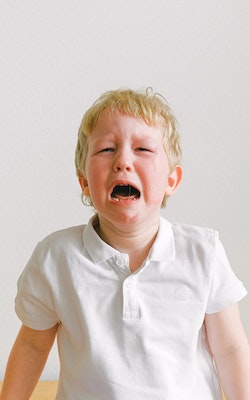
2- Gradual weaning:
Like any other addiction, the pacifier is also considered an addiction for a kid. The dependency on the pacifier becomes habitual or sometimes psychological.
Gradual weaning is also a tested method in which the addiction is dealt with slowly and steadily. This method may work if you are consistent and can distract your 4-year-old for quite some time.
It may take a long time to completely wean the kid as compared to the cold turkey method, but it would be a bit easier for you and your child.
This post may contain affiliate links. Read our disclosures here.
What is the best way to get your 4-year-old to stop sucking on a pacifier?
The best to get your 4-year-old off the pacifier is by convincing him to stop it.
4-year-olds can understand what you tell them. It will be much easier to stop the pacifier when they want to.
Instead of doing it all by yourself, leave most parts of the process on their end.
Tell him the adverse effects again and again. Then, instead of hiding the pacifier, you should make up his mind gradually.
Your 4-year-old should be willing to stop it, or he should understand that it’s not coming back.
We have devised some easy and best ways to get your 4-year-old to stop sucking the pacifier.
1- Tell them stories:
4-year-olds love to hear stories and tend to adapt to changes quickly with the story power. Kids have a great imagination.
They create the whole picture of the story in their mind. It is easy to make your child’s mind through creative pacifier stories.
Make up a story about how the pacifier came into his life and where it is going now. Maybe it is going to a newborn baby or a magic fairyland of pacifiers. Lots of board books will tell this story for you if you prefer.
There are many great story books available that can help you get your 4 years old off the pacifier like:
1- Pacita the Pacifier Fairy (Big Kid Chronicles)



3- Pacifiers Are Not Forever (Board Book)

2- Change the taste of the binky:
Being a parent, you would know what your child does not like to taste or eat. Put something on the nipple of the pacifier, so the kid hates the taste and ultimately hates taking the pacifier in the mouth. Things like aloe vera, turmeric, and lemon could do the job.
3- Exchange it with something else they want:
A new toy is what makes every child excited. See if your child has wanted a new toy for a long time.
Tell him that a gift fairy will come to pick up the pacifier at night, and she will leave your favorite toy in the place of the pacifier.
And then! Do it practically. Place the binky beside his pillow and when he is asleep, exchange the binky with his favorite toy.
But remember, once the pacifier is gone this way, it’s not coming back. So, before you do it, ask your kid if he wants to exchange it with the toy.

4- Get another soothing toy:
Pacifiers give a soothing effect to a child.
During the weaning process, get your child another soothing toy or stuff like plushes, pop it, or slime. Slowly and gradually, he will get comfort from these toys.
5- Never stress your child to leave the pacifier:
Keep your tone neutral and loving during the weaning process. If the child gets upset or cries for the pacifier, reflect them back, using phrases like “I know it is hard for you,”
“I know you are missing your pacifier,”
“I know you like it,” etc.
Never take away the pacifier as a punishment. Instead, always praise and acknowledge the little steps your little one took—this is positive reinforcement to encourage your desired behavior.
6- Cut it off
Cut the end of the pacifier and tell the kid that the pacifier is broken and has to be thrown away. Don’t give it back even if he asks you to get it from the market.
Tell him that the supermarket does not allow him to buy a pacifier for a 4-year-old kid and that it is only for newborn babies.
7- Appeal to your child’s sympathies
Appealing to your child’s sympathies might work. For example, tell him that the pacifiers are for babies, and now that he is a big boy, he is in the perfect place to donate to a newborn baby in need.
8- Keep little hands busy.
Some kids suck the pacifier because they are bored. Keep the little hands busy with stuff like board games, arts, crafts, toys, slime, play dough, and creative activities to avoid boredom-related pacifier use.
9- Hold your ground.
If your child screams, fuss, or whines without their pacifier, keep a hold on your ground and stay strong. This, too, shall pass. After a few days, they will get used to it.
After all, you are doing it for his betterment.
10- Think about the timing.
Don’t start the weaning process when it is already a difficult phase for you and the kid. That might include times like :
1. They are not feeling well.
2. When you are on vacation.
3. When you are moving into a new place.
4. He recently had a new sibling.
5. When he has just started school.
Conclusion:
The easiest way to get your 4-year-old off the pacifier is to convince him to do so or make him understand that it’s not for him anymore.
Going cold turkey or trying to wean off only on your end may not work as the 4-year-olds know how to get them listened to. They know how to blackmail mommy to get the things they want. Isn’t it true?
So, try the above-listed ideas and see what works for your child. Please understand that every child is different. What works for me; may not work for you.
You know your kid better, so follow your mom’s experience to get your 4-year-old off the pacifier.

